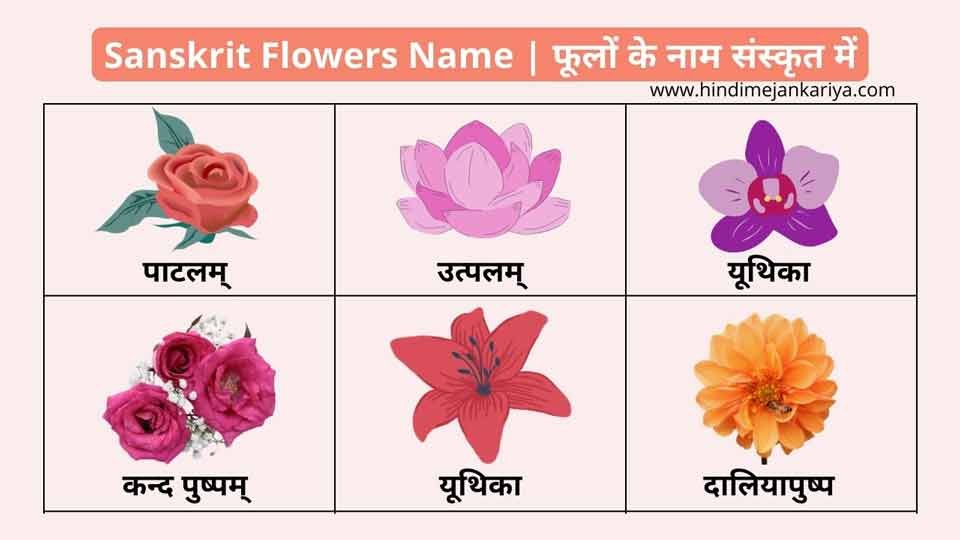As we embark on the journey of building or buying a new home, the excitement of creating a space that embodies our dreams is often accompanied by a quest for the perfect name. A name holds significance, acting as an identity for our dwelling and reflecting our aspirations. For those seeking a unique and meaningful name, Sanskrit, a rich and ancient language of India, offers a treasure trove of possibilities.

Image: hindimejankariya.com
Sanskrit names for houses not only sound beautiful and elegant but also carry profound meanings that resonate with the essence of a home. They evoke feelings of peace, prosperity, and well-being, and can imbue your abode with a sense of tradition and spirituality. In this article, we delve into the world of Sanskrit names for houses, exploring their history, meanings, and significance. Let’s embark on a journey to find the perfect name for your sanctuary.
Decoding the Beauty and Meaning of Sanskrit Names
Sanskrit, a language known for its precision and depth, provides a wealth of options when choosing a name for your home. These names are not merely sounds; they are intricate combinations of syllables that carry specific meanings and cultural connotations.
For centuries, Sanskrit has been used in religious texts, philosophical treatises, and artistic expressions. It’s considered a sacred language, and its names are often imbued with spiritual and symbolic significance. Choosing a Sanskrit name for your house can be a way of inviting positive energy, good fortune, and blessings into your dwelling.
Unveiling the Essence of Sanskrit Names for Houses
Sanskrit names for houses typically encompass concepts like:
- Harmony and Balance: Names like “Samadhan” (harmony), “Saumya” (peaceful), and “Shanti” (peace) symbolize a home where serenity and tranquility reign.
- Prosperity and Abundance: Names like “Samridhi” (prosperity), “Dhanvan” (wealthy), and “Vrishti” (abundance) reflect the desire for financial well-being and success.
- Happiness and Joy: Names like “Sukha” (happiness), “Ananda” (bliss), and “Mangat” (auspicious) create a positive and joyful aura for your home.
- Protection and Security: Names like “Raksha” (protection), “Suraksha” (security), and “Abhaya” (fearless) invoke a sense of safety and security for your family.
- Knowledge and Wisdom: Names like “Vidya” (knowledge), “Jnana” (wisdom), and “Bodhi” (enlightenment) reflect the pursuit of learning and intellectual growth.
Beyond these general categories, you can find Sanskrit names that resonate with your personal values, interests, or beliefs. Names related to nature, gods, goddesses, or even specific virtues can all be explored for a truly meaningful choice.
Tips for Choosing the Perfect Sanskrit Name
Choosing the right Sanskrit name for your house is a personal journey. Consider these tips to guide your selection:
- Reflect on Your Intentions: What kind of atmosphere do you want to create in your home? What are your hopes and dreams for this space?
- Explore Different Meanings: Delve into the rich lexicon of Sanskrit, exploring multiple names and their meanings. You can find online resources, consult dictionaries, or seek guidance from a Sanskrit scholar.
- Consider the Phonetics: The sound of a name is as important as its meaning. Choose a name that flows well and is easy to pronounce.
- Get Feedback: Share your shortlisted names with friends and family, seeking their opinions and insights.
- Trust Your Instincts: Ultimately, the best name is the one that feels right to you. Listen to your intuition and choose a name that resonates deeply with your heart.
By following these tips, you can ensure that the name you choose for your house is not only auspicious but also a reflection of your unique personality and aspirations.

Image: thelittleyogithatcould.wordpress.com
FAQs: Common Queries Regarding Sanskrit House Names
Q: Is there a specific process for naming a house in Sanskrit?
A: While there are no strict guidelines, many follow traditional practices like consulting an astrologer or pandit who can help select a name based on the homeowner’s birth star or other astrological factors. You can also choose a name that resonates with your family’s values or cultural heritage.
Q: Can I use a combination of Sanskrit words to create a unique name?
A: Absolutely! Creative combinations of Sanskrit words can lead to truly unique and meaningful names. These names can reflect your individuality and the specific aspects of your home that you cherish.
Q: How do I know if a name is suitable for my house?
A: Trust your instincts. If a name feels right and aligns with your desires for your home, it’s likely a suitable choice. You can also consult with those knowledgeable in Sanskrit or explore online resources for guidance on selecting a name.
Q: Can I simply translate an English name into Sanskrit?
A: While you can find translations, it’s often more meaningful to choose a Sanskrit name that resonates with the essence of your house rather than a direct translation. Sanskrit names have a richness and depth that’s unique to the language.
Good Names For House In Sanskrit
Call to Action
Choosing a Sanskrit name for your house is a wonderful way to imbue your dwelling with cultural significance and create a space that truly embodies your aspirations. It’s a journey of discovery, exploration, and ultimately, finding a name that feels resonant and fitting for your sanctuary.
Are you interested in learning more about the beautiful world of Sanskrit names or perhaps seeking assistance in finding the perfect name for your home? Let us know in the comments below!






